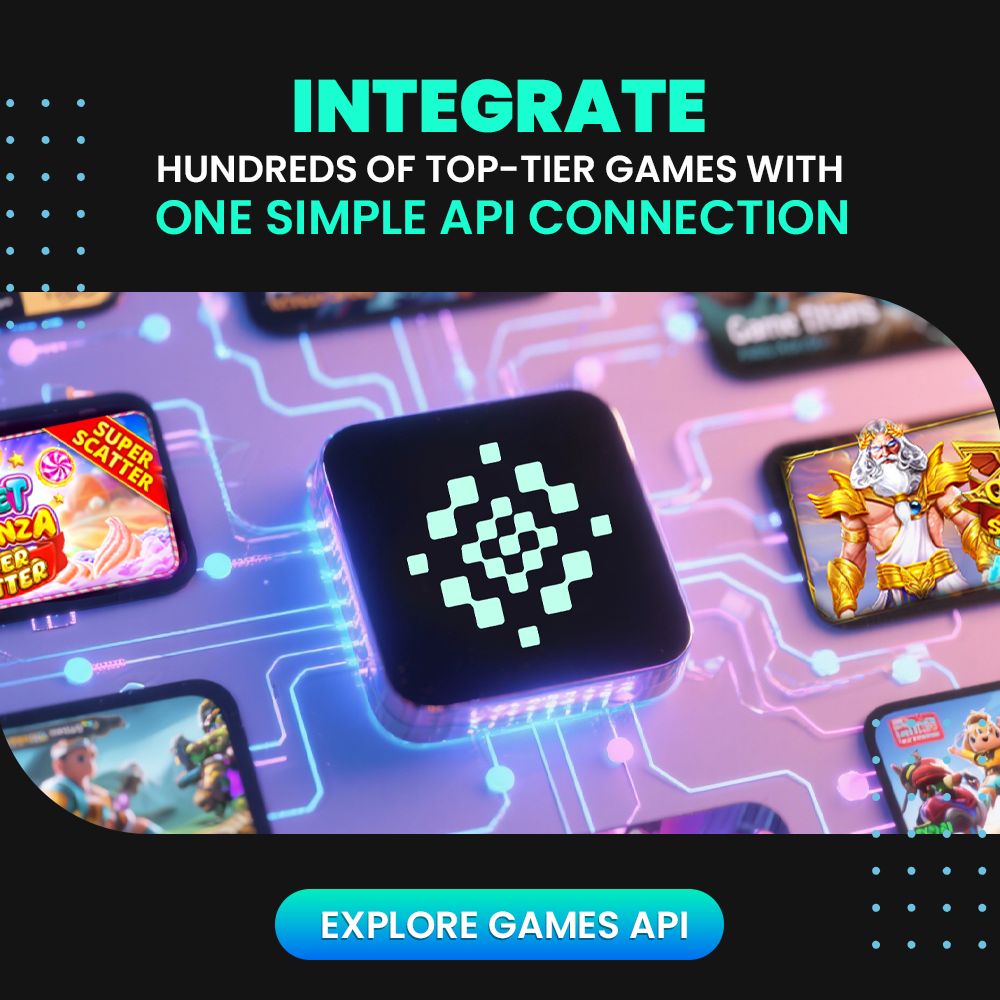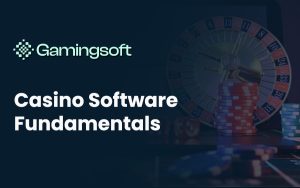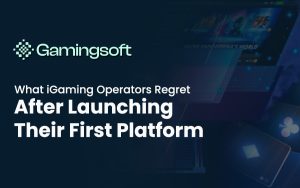The sports betting industry has evolved from traditional bookmakers to a multibillion-dollar digital ecosystem. Behind every successful online sportsbook lies a powerful technology infrastructure — the sportsbook software.
According to “Sports Betting Software and Market Dynamics“, the iGaming sector’s explosive growth in the last five years has been fueled by automation and real-time data integration. In other words, software is the foundation that makes betting smooth, secure, and scalable.
But what exactly is a sportsbook software provider — and how do they help online operators build and manage thriving betting platforms?
The Role of a Sportsbook Software Provider
A sportsbook software provider is the company that develops, maintains, and powers the digital backbone of online betting platforms. Instead of operators building systems from scratch, providers deliver ready-made or customizable solutions that include odds feeds, risk management, payment systems, and user interfaces.
From a B2B perspective, this partnership allows operators to focus on marketing and acquisition while the provider ensures technical stability and regulatory compliance.
As explored in “The Evolution of Digital Betting Systems“, modern providers are more than technology vendors — they are strategic partners who balance innovation, data security, and compliance across multiple jurisdictions.
Core Components of a Sportsbook Platform
A complete sportsbook system includes several integrated components that ensure stability, fairness, and player satisfaction.
1. Odds and Data Engine
At the heart of every sportsbook lies the odds engine. It collects live data from global sporting events, calculates probabilities, and updates odds in real time.
GamingSoft’s own system uses an intelligent algorithm that continuously adjusts odds based on market activity, keeping operators profitable while ensuring fairness.
2. Risk and Liability Management System
Every operator faces potential losses from unexpected results or large bets. A robust risk engine identifies unusual betting patterns, automates exposure limits, and prevents major financial hits. AI-driven monitoring has become standard practice to reduce risk and improve sustainability.
3. User Interface and Player Experience
A smooth user experience can make or break a sportsbook. Players expect quick navigation, responsive design, and seamless betting across devices. A good software provider designs flexible front-end frameworks that can be customized for different brands without sacrificing performance.
4. Integration and Scalability
A scalable backend ensures your platform can handle thousands of simultaneous users and transactions. Cloud infrastructure, modular APIs, and load-balancing technologies are crucial for global operators. Providers like GamingSoft combine these capabilities with a multi-wallet architecture to unify casino, sportsbook, and payment systems.
How Sportsbook Software Providers Empower iGaming Businesses
Choosing the right provider means more than getting software — it’s about unlocking operational efficiency. By outsourcing technical complexity, operators can focus on growth, acquisition, and brand building.
A solid provider ensures:
- Faster go-to-market: Launch new brands or expand to new regions in weeks, not months.
- Lower operational cost: Reduce the need for large in-house tech teams.
- Data-driven management: Access real-time analytics on betting volume, margins, and retention.
According to “Technological Transformation in Betting Systems“, the use of integrated sportsbook solutions can improve business efficiency by more than 35% through automation and smart reporting.
For deeper exploration, you can read “How to Start a Sportsbook Business” and “Sportsbook Marketing Strategies for Online Casino” — both explain how operational and marketing strategies work together to drive profitability.

The Business Model Behind Sportsbook Providers
Not all sportsbook platforms are the same. Providers generally offer three types of business models, depending on the operator’s needs and resources.
1. White Label Solution
Perfect for newcomers. The provider manages the entire platform — from licensing to payments — while the operator focuses on branding and marketing.
2. Turnkey Solution
Ideal for established operators. The provider delivers the core platform and integrations, while the operator customizes design, payment methods, and player management.
3. API Integration
For enterprises or large groups, API-based sportsbook modules allow custom integration with existing systems, offering full control over UX and data analytics.
As detailed in “Sportsbook Technology and Competitive Advantage“, modular sportsbook architecture has become the backbone of innovation — allowing B2B partners to scale faster while reducing development costs.
How to Choose the Right Sportsbook Software Provider
The best sportsbook provider balances technology, compliance, and adaptability. Here are five key factors to consider:
- Regulatory Compliance and Licensing
- Ensure the provider operates under valid iGaming jurisdictions and meets AML/KYC standards.
- See “Legal Landscape of Sports Betting Technologies” for more context.
- Data Accuracy and Reliability
- Look for uptime guarantees and real-time event monitoring. Delays in odds can cause financial and reputational damage.
- Customization Capabilities
- Choose systems that can adapt UI/UX and betting markets to your brand identity.
- Scalability and Multi-Platform Support
- A good provider supports growth across devices, currencies, and markets without major reintegration.
- Support and Maintenance
- Round-the-clock tech support and dedicated account management are essential, especially for high-volume operators.
For a more detailed comparison, explore “5 Best Sportsbook Providers in 2024” and “Best Acquisition Strategies for Your Sportsbook Business“.
Why Partnering with GamingSoft Gives You the Edge
GamingSoft has spent over a decade developing sportsbook and casino systems tailored for Asian and global operators. With an extensive portfolio of B2B solutions, the company provides multi-language interfaces, local payment integrations, and advanced risk engines designed for real-world sportsbook operations.
Unlike traditional providers, GamingSoft offers more than a product — it delivers a growth ecosystem, combining data insights, game aggregation, and marketing tools under one brand.
By integrating its sportsbook software, you don’t just get a betting engine — you get a scalable business model built for conversion and retention.
Build Your Own Sportsbook with GamingSoft
Launching your own sportsbook has never been more accessible. With GamingSoft Sportsbook, you get a turnkey solution that balances speed, scalability, and compliance — everything you need to run a successful sports betting brand.
Whether you’re a startup or an established operator, GamingSoft’s platform adapts to your goals with modular architecture, live data feeds, and robust anti-fraud protection.
Conclusion
A sportsbook software provider is more than a vendor — it’s the architect of your betting business. From real-time odds engines to regulatory support, these platforms form the technological core of iGaming operations.
In today’s competitive landscape, automation and player experience define success. Providers like GamingSoft empower businesses to go beyond functionality — creating ecosystems where data, design, and reliability work together to maximize growth.
As emphasized in Sportsbook Technology and Competitive Advantage, the future of sportsbook software lies in continuous innovation — blending intelligent automation, personalized UX, and data-driven decision-making.
The question isn’t if you should have a sportsbook platform — it’s which provider will help you build one that lasts.
FAQs About Sportsbook Software Providers
What’s the difference between sportsbook software and casino software?
Sportsbook software manages betting on sports events — focusing on odds, real-time data, and match outcomes. Casino software, on the other hand, supports slots, tables, and RNG-based games. Many iGaming platforms combine both through unified back offices, giving operators one system to manage all betting products.
How much does it cost to build or license sportsbook software?
It depends on the model. White‐label and turnkey solutions typically start from USD 20,000–50,000 for setup, while custom enterprise-level systems can exceed USD 100,000. These figures are market-educated estimates, based on vendor pricing ranges and industry reports (see Fortis Media’s “Best Sports Betting Software: Reviews & Ratings from 8 Top Providers”).
Partnering with an established provider like GamingSoft can help reduce long-term infrastructure expenses.
Can sportsbook software providers integrate local payment solutions?
Yes — leading providers offer multi-currency and localized payment gateways that comply with regional banking regulations. For example, GamingSoft integrates Asian systems like EeziePay, GSPay, and Help2Pay to ensure frictionless deposits and withdrawals. This flexibility improves user retention and trust.
How do sportsbook providers handle live betting and streaming data?
Modern sportsbook platforms rely on real-time APIs and data feed partnerships to deliver live odds and event tracking. Providers often use low-latency data pipelines to update markets instantly. This is crucial for live betting, where even a one-second delay can impact margins and user confidence.
Are sportsbook providers responsible for gaming licenses?
That depends on the agreement. Some white-label providers manage licensing under their own jurisdictions, while turnkey or API-based solutions require the operator to obtain separate licenses. Always confirm the provider’s regulatory coverage and ensure it aligns with your target markets before launching.





